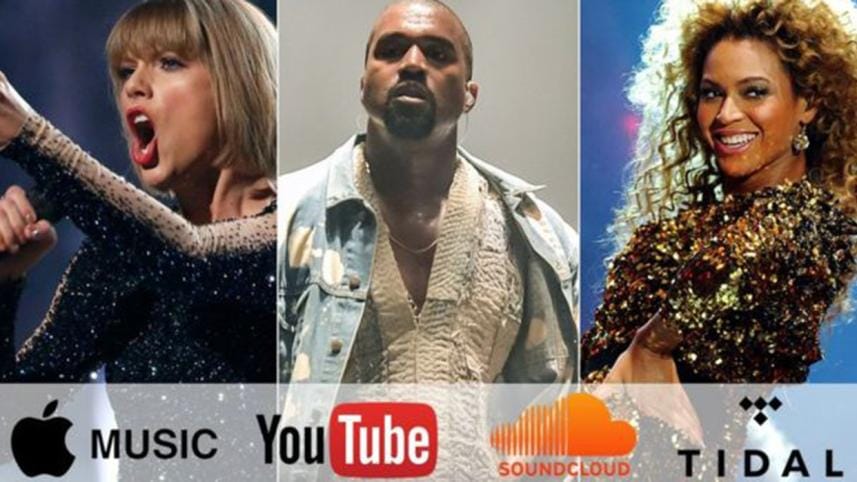Music and YouTube - an uneasy marriage

The British music industry had a great year in 2015.
Adele's 25 was one of the best-selling albums of all-time and she, along with other British artists, had a record share of the global music market.
More music was consumed in all sorts of ways, from streaming video and audio to good old-fashioned vinyl.
There was just one problem - money earned from sales and streaming actually fell. And the industry knows who it blames - YouTube.
The trade body the BPI has released its annual compendium of music industry statistics - and is using the opportunity to throw a few rocks at Google, the tech company it has long blamed for many of its problems.
Years ago, the prime cause for complaint was that the search firm did nothing to dissuade users from finding illegal copies of music rather than paying for the genuine article. Now the focus has switched to YouTube, which has become a very popular way for millions to access music.
The BPI contrasts the income artists get from audio-streaming services like Spotify with the revenues from video streaming. An 82% rise in the number of audio streams saw revenue from this source soar by more than two-thirds to £146m. Meanwhile, video streams increased at an even faster rate - but revenue rose a mere 0.4% to just £24.4m.

The BPI said that was even less than the industry earned from vinyl sales last year. For its chief executive Geoff Taylor, the message is clear: "Music is helping to grow YouTube's business but they are not sharing that value with its creators."
But most of the music on YouTube is there because it's been uploaded by Vevo, a company created by the labels for that purpose. So isn't the problem that the labels have simply negotiated a poor deal with YouTube's owner Google?
Ah, says Geoff Taylor, that is down to the industry being in a weak position because of Safe Harbours. Safe what, you may ask? He is referring to American and European legislation that protects technology platforms from being sued when their users illegally upload copyrighted material.
That apparently means that the labels are at the mercy of the technology giant that owns the world's most important video platform - if they don't agree terms, their music will be uploaded anyway and they will earn nothing.
The industry seems to want the government to do something about this - though I am not quite clear what.
When I get through to someone at Google, there's a sigh. "We seem to be their villain of the day."
The company tells me that the safe harbour argument is nonsense - after all, Google invested heavily in its Content ID system, which allows the labels to track down copyrighted material and choose either to take it down or to monetise it.
YouTube also rejects the comparison with Spotify (which ironically is itself a low payer in many artists' eyes).
It says a subscription service based solely on music is very different from a video service that offers all kinds of content free, supported by advertising.
Google wants the music industry to see YouTube as a great promotional tool for bands new and old - a bit like radio - rather than a revenue centre.
What are we to conclude then? That the music industry is still struggling to come to terms with an era when fans will find all kinds of ways, many of them free, to enjoy and share the output of their favourite artists?
Or that once again, an arrogant US technology company is making huge profits from creative content while pretending that it isn't a media business so doesn't have to play by the rules?
Of course, you may decide that both of those versions are true.



 For all latest news, follow The Daily Star's Google News channel.
For all latest news, follow The Daily Star's Google News channel.
Comments